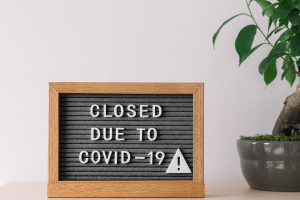
Affordability, Structuring and How to Decide on Whom to Invest With…
Capital Gains Tax and its ramifications don’t have to be a mystery.
But if you don’t ‘get it’, ask us at Knox Taxation and Business Advisory. We’ve got the answers from all angles.
Last week we talked about the basic principles of Capital Gains Tax. This week we’re taking it one step further to explain the concepts of Property Investment.<
Coral Page has seen people prosper and others fail. The latter have usually not done their homework sufficiently before choosing to invest in a property for supposed financial gain. Coral’s words of wisdom may well help you understand how imperative it is to plan, prepare and develop knowledge – and seek qualified advice – from your Accountants in Boronia, at Knox Tax. Here’s what she has to say:
Can you actually afford to become a property investor?
As Tax Accountants, and Professionals, our role is to help you look after your money, so we want to help you:
- Ensure that you minimise the holding costs of your investment, and
- Ensure the property is as affordable as possible.
Firstly, it’s vital that you purchase the right property, and that there is neither hint nor likelihood of extended tenant vacancies.
For our clients who are thinking about investing in a property, we assess the client’s financial situation and give an estimate of the weekly out-of-pocket cost they can expect to incur. I often have clients amazed at how affordable holding a property can be for their particular situation, or, on the other hand, it may be out of their reach at present, and they have to accept that saving or earning a little more income has to come first – before they take the plunge.
It’s important for our investing clients to not suffer with interest rate rises either, and given the interest rates are so low at present, I like to factor in scenarios of a one to two percent interest rate increase (to demonstrate what the extra cost is likely to be), thus ensuring my clients are aware of any potential rise, and will need to be able to accommodate it.
When, as a potential investor, you’ve set your sights on a particular property, and have received some detailed information, we prepare a cash flow that will demonstrate the real out-of-pocket expenses you’ll incur, and the after-tax cost per week – and that may be completely different to what spruikers and developers are telling you as they try to close the sale.
A combination of correct ownership structure, financing, depreciation reports, and tax instalment deduction variations all work together, to ensure that the cost of holding the property is minimised. And that’s something more that we can help you with at Knox Taxation and Business Advisory in Boronia.
Some of the key areas we address are:
- Structuring
- Financing
- Tax Depreciation Report (Comparing Existing Property versus New Property)
- Tax Instalment Deduction Variations.
Structuring your investment
Establishing the correct foundation through structuring is vital, and it’s very important to receive sound advice from an expert in this field – not from a mate, or the bloke at the pub, nor the Real Estate Agent. Again, this is something we can help you with at Knox Taxation and Business Advisory in Boronia.
Generally, the capital gains, the losses on sale, and the profits and losses incurred each year must be apportioned according to the ownership on the title – not to who is on the loan documents.
There is no one ideal structure for holding investment property, but it is important to take into account your personal goals, your work goals, and how long you’re likely to hold the property. For example, if a couple is purchasing the property, you should consider whether:
- One party is likely to cease work in the short term, or return to work. And what are your actual projected incomes?
- Do you wish to build a portfolio of property?
- Are your properties likely to become positively geared within the next few years, or are you, as the investor, in the position to positively gear some property?
You should also ask us about Asset Protection – maybe one of your ownership parties owns a business, and it may be important not to have valuable assets in their name. If you’re not sure, talk to us today at Knox Tax. We’ll set you straight.
Should you look at your ownership of an investment property as an individual, or as a partnership?
Do you realise that when a couple purchases a property, under joint ownership, the ownership defaults to 50:50 ownership?
However, should two or more of you be purchasing a property, and wish to vary the ownership to suit your situation, then the property needs to be purchased under “tenants in common”. This not only allows you flexibility in ownership percentages, but also allows each party to will their share of the property to a beneficiary of their choice. This, however, is not the case with joint ownership.
If it’s expected that your property will be negatively geared for a number of years, and the negative gearing benefits are likely to be substantial, then it makes sense for the high income earner to own the asset, and offset the tax deduction against their other income. However, a disadvantage of this strategy is that if the asset becomes positively geared, or is sold, and a capital gain is made, then that net profit or capital gain will be taxed at the higher earning individual’s more inflated marginal tax rate.
Company or trust?
A significant disadvantage of holding a negatively geared property in a Company or Trust is that the excess losses are ‘trapped’ in that Company or Trust. They cannot be used to offset the investor’s/investors’ taxable income and, thus, deliver an attractive refund to assist with the costs of holding the property.
The losses are carried forward and can be used to offset future profits generated in the Company or Trust. However, these losses do not offset future capital gains, much to the disappointment of many of our clients. Capital gains can only be offset by capital losses.
At Knox Taxation and Business Advisory, we generally advise against the use of a Company to hold an investment property. A Company could be used to hold a property if it is positively geared, and where the investor wishes to use the 30% Company tax rate, or help with asset protection.
However, a Company does not give the asset the protection that a Discretionary Trust does, as the shares owned by a taxpayer are assets, and can be sold to satisfy the debts of a taxpayer.
The most significant disadvantage of holding property in a Company is that the Company is not entitled to a 50% discount on Capital Gains Tax; whereas an individual taxpayer is entitled to this discount. So do be wary. Not being able to access the Capital Gains Tax discount is a disincentive for holding assets in companies.
A Discretionary Trust, however, provides superior asset protection because, even if an individual taxpayer is bankrupted, the assets in the Trust are protected (as the individual owns no interest in a Discretionary Trust).
A Discretionary Trust can be used to distribute capital gains to beneficiaries in an effective manner, and the individual beneficiary is also able to obtain a 50% discount on Capital Gains Tax (in their own individual returns).
Contact Us Today
Do you feel a bit bamboozled by the concept of how to structure your foray into Property Investment now? That’s certainly not our intention by presenting you with this information. We just hope that today’s News Post furthers your understanding about the complexities, advantages and pitfalls of Capital Gains Tax.
On a lighter note, we’re always here at Knox Tax to help you make informed decisions about investing in property. We’ll explain the terminology in much simpler terms that relate to your particular situation, make you aware of what you’re getting into, and carefully assess where you’re coming from – and, more importantly, where you’re aiming to get to.
A professional consultation with us, your Capital Gains Tax Accountants in Boronia, could well make the crucial difference between making a fantastic, or a diabolical decision that could affect YOUR future financial growth.
Next week we’ll tell you more!
Stay tuned and watch this space, OR make an appointment to see us TODAY.  We’re always here to help.”
We’re always here to help.”
Kind Regards,
Coral Page and the Knox Tax Team
Knox Taxation and Business Advisory – Your Accounting and Capital Gains Tax Experts in Boronia





